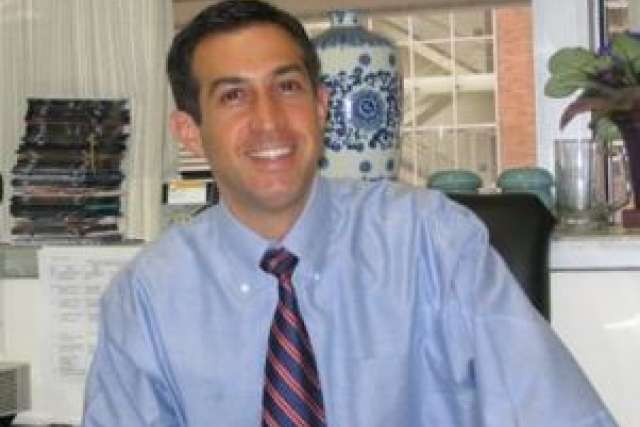UCLA Health has joined an important national clinical trial that uses genetic testing to match people who have acute myeloid leukemia, or AML, with new therapies. UCLA’s hospital system is the first in California to offer people the opportunity to participate.
The Beat AML Master Trial will evaluate a precision-based medicine approach to treating the disease; it will allow people with the disease to have immediate access to new treatments that are currently in development without having to try more traditional approaches first. The approach could streamline a patient's course of treatment and, ultimately, save more lives.
Acute myeloid leukemia, which affects 20,000 Americans annually, is responsible for more than 10,000 deaths a year, making it the most lethal form of blood cancer.
"The ability to quickly connect patients with investigational drug therapies based on the individual genetic markers of their disease is the essence of precision medicine," said Dr. Gary Schiller, the principal investigator in the UCLA arm of the trial and a member of the UCLA Jonsson Comprehensive Cancer Center. "We hope that this becomes a turning point in how we treat this disease, which is, in many ways, multiple diseases with multiple mutations involved."
The trial — for people 60 and older who are newly diagnosed with acute myeloid leukemia — is sponsored by the Leukemia & Lymphoma Society and is divided into nine treatment arms based on participants' genetic profiles. Once people are enrolled, their bone marrow is analyzed for genetic markers to help researchers determine the most appropriate treatment for their subtype of the disease. People who have no known biomarkers are placed in a separate treatment group, where they also receive a new therapy.
"Participation in the Beat AML Master Trial further demonstrates UCLA Health's mission to provide patient-focused care through the most leading-edge therapies available," said Johnese Spisso, president of UCLA Health and CEO of the UCLA Hospital System. "We will continue to provide such care as medical research advances the field of cancer treatment."
The trial is among a wide array of treatment options for people with blood cancer at UCLA Health, which has long been a leader in the research and treatment of cancer, including hematologic malignancies.
Earlier this year, UCLA Health began offering both CAR T-cell therapies that are currently approved by the U.S. Food and Drug Administration for certain types of blood cancers. These therapies are used to treat people with certain types of lymphoma, including those with diffuse large B-cell lymphoma, and children and young adults with B-cell precursor acute lymphoblastic leukemia. Both therapies are available to people for whom other therapies have proved ineffective.
The advanced cancer therapies available at UCLA Health reflect the expertise of both physicians and researchers in the development and delivery of cellular therapy, immune therapy and gene therapy, as well as more traditional treatment approaches.
"For too long we've treated AML as a one-size-fits-all disease when it is really a much more complex grouping of multiple subtypes of blood cancer, and this trial sets out to change that paradigm," said Louis J. DeGennaro, the Leukemia & Lymphoma Society's president and CEO. "Our goal with this innovative trial is to deliver the right drug to the right patient at the right time, and we're encouraged by the progress we've seen in the past year. The addition of a prestigious institution such as UCLA Health will help us deliver critical help to patients who urgently need better options, now."
For details on the trial at UCLA, call 310-794-0242.
Learn more about the cancer research theme at UCLA.




